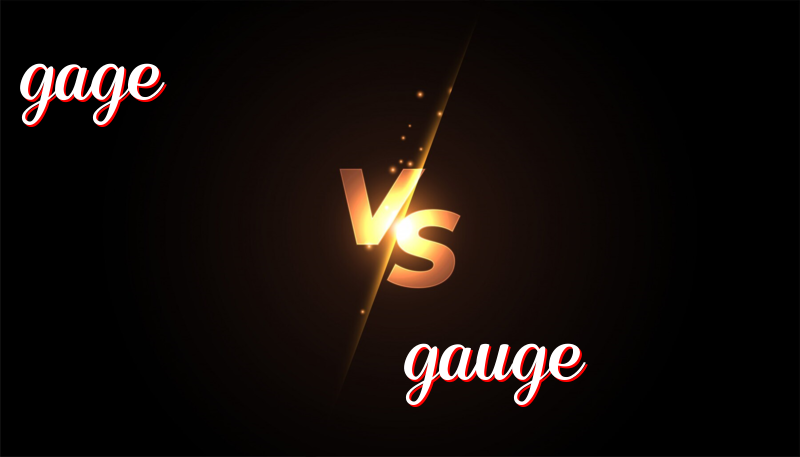Understanding the Difference Between Gage and Gauge: History, Usage, and Tips
August 05, 2024
Difference Between Gage and Gauge
The words “gage” and “gauge” may look the same, but they have different meanings and uses. Let’s learn about them.
History
“Gage” comes from an old English word meaning a pledge or something given as a promise. “Gauge” comes from a French word meaning to measure.
Usage
Gage
“Gage” is not used very often today. It means a promise or something given to show a promise.
- He gave his gage to pay back the money.
- The gage was a ring she loved.
- He accepted the gage and let them pass.
- She gave a gage to show she would return.
- The knight threw down his gage to accept the challenge.
Gauge
“Gauge” is used to talk about measuring things. It can be a tool or the act of measuring.
- He used a ruler to gauge the length of the table.
- A rain gauge helps us know how much rain fell.
- She likes to gauge how people are feeling.
- The tire gauge showed the pressure was too low.
- They gauged the size of the crowd carefully.
Trick to Remember the Difference
Think of “gage” as a promise or something you give (like a ring or a pledge). Think of “gauge” as related to measuring (like a ruler or a scale).
Summary
“Gage” means a pledge or something given as a promise but is used less often. “Gauge” means to measure or a tool for measuring and is more common.
- “Gage” = Promise
- “Gauge” = Measure

Leave a Reply
You must be logged in to post a comment.